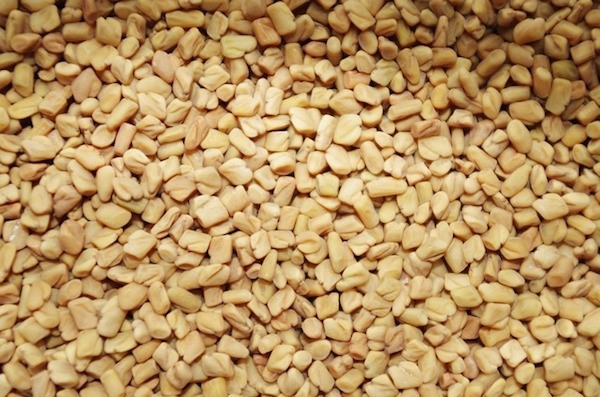
The happiest moments in a family and couple’s life is that period when the wife is heavy with child. Everyone is expectant, and also,everyone has one advice to give; especially dietary.
One of those many advice is the intake of pineapples during pregnancy;so many claims that pineapple contains ‘bromelain’ ( a protein digesting enzyme), which poses a threat of miscarriage or induces premature labour on the woman.
BROMELAIN
Bromelain is a protein-digesting enzyme mixture derived from the stem, fruit, and juice of the pineapple plant. It has a centuries-long history of being used to treat medical ailments, primarily throughout Central and South America.
It is currently categorized as a dietary supplement, and generally recognized as safe (GRAS) by the U.S. Food and Drug Administration (FDA).
Bromelain may be used alone or in conjunction with other medications. People use bromelain topically, to remove dead skin from burns, and orally, to reduce inflammation and swelling — particularly of the nasal passages.
Bromelain is also used as a digestive aid, for osteoarthritis, and to reduce soreness in aching muscles.
Potential health benefits
Bromelain and its potential health benefits have been studied extensively in multiple areas. These include:
1. Osteoarthritis
Clinical studies found that bromelain’s anti-inflammatory and analgesic properties make it an effective treatment for the pain, soft-tissue swelling, and joint stiffness associated with osteoarthritis.
The review focused on bromelain’s effectiveness in treating arthritis of the knee and shoulder. The studies analyzed varied significantly in terms of dosage. Improvements were found in some study participants given 400 milligrams of bromelain, two times daily.
2. Cardiovascular disease
A source reported that bromelain was effective at treating cardiovascular diseases, such as peripheral artery disease, stroke, heart attack, and high blood pressure.
Bromelain inhibits the ability of blood platelets to stick or clump together (aggregation). This may help reduce clot formation and cardiovascular events.
3. Asthma
The results of an animal study indicated that bromelain’s anti-inflammatory effects might be beneficial to people with asthma or other forms of allergic airway disease.
4. Chronic sinusitis (chronic rhinosinusitis)
A pilot study found that bromelain tablets were effective at alleviating swelling, congestion, and other symptoms associated with chronic sinusitis. Study participants were given bromelain daily for a 3-month period.
5. Colitis
An animal study found that purified fruit bromelain reduced inflammation and healed mucosal ulcers caused by inflammatory bowel disease in rats.
6. Burns
A study review found that bromelain, when used as a topical cream, was highly effective at safely removing damaged tissue from wounds and from second- and third-degree burns.
7. Cancer
A 2010 study indicated that bromelain shows promise in combating cancer. Bromelain may have the ability to positively impact cancer cell growth, and it may help to control the key pathways supporting malignancy.
NUTRITION
Positive nutritional effects have been shown in bedridden, tube-fed, nursing home patients who received a supplementary digestive aid containing bromelain plus an extract of Aspergillus niger. Total protein concentration improved significantly with the supplement (P < 0.02), which was reversed after withdrawal.
DOSAGE
Two slices of pineapple contain approximately 100 mg of ascorbic acid (vitamin C), approximately the recommended daily adult intake. Commercially available bromelain supplements contain predominantly stem bromelain, as compared with fruit bromelain.
The usual dosage of bromelain is 40 mg 3 or 4 times daily. However, because bromelain is regarded as being relatively nontoxic, doses of up to 2,000 mg/day have been used.Most commercial products contain bromelain 500 mg; manufacturers suggest a dosage regimen of 500 to 1,000 mg daily.
PREGNANCY
Information regarding safety and efficacy in pregnancy and lactation is lacking. Clinical evidence to support the traditional use of pineapple as an emmenagogue and abortifacient is limited.  Previously, bromelain/trypsin (as Kimotab) was investigated for use in breast engorgement during lactation.
Previously, bromelain/trypsin (as Kimotab) was investigated for use in breast engorgement during lactation.
A cup or two of pineapple juice per week won’t do any harm to mother or foetus, rather it supplies a lot of benefits as:
- 2 slices of pineapple contains about 100mg of vitamin C which is a bit above the daily value for pregnant women (85mg/day). Vitamin c helps repair and prevent cell damage by warding off free radicals.
- Contains manganese which helps build strong bones and connective tissues
- Might be helpful in preventing osteoporosis in post menopausal women
HEALTH RISKS
Because pineapples contain a whole lot of vitamin c, overconsumption may lead to diarrhoea, abdominal pain, nausea and heartburn for some people.
Additionally, extremely high amounts of bromelain can cause skin rashes, vomiting, diarrhea, and excessive menstrual bleeding, according to the University of Maryland Medical Center. Bromelain can also interact with some medications. Those taking antibiotics, anticoagulants, blood thinners, anticonvulsants, barbiturates, benzodiazepines, insomnia drugs and tricyclic antidepressants should be careful not to eat too much pineapple.
SOURCES: https://www.drugs.com/npp/pineapple.html
https://www.livescience.com/45487-pineapple-nutrition.html
https://www.healthline.com/health/bromelain#health-benefits




